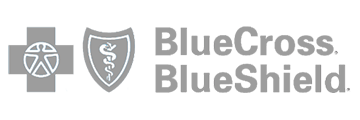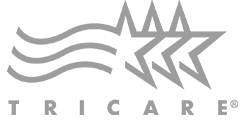Our Services – Southeast Addiction Center
We have multiple addiction treatment service options.
Inpatient & Outpatient Programs
Inpatient & Outpatient Programs offer different levels of care for individuals seeking treatment for their medical conditions. Southeast Addiction Center inpatient programs, also known as residential programs, provide intensive and round-the-clock care to patients who require a higher level of medical supervision, such as those recovering from surgery or managing chronic illnesses. These programs are typically conducted in hospitals or specialized healthcare facilities, where patients stay overnight for a specified period of time to receive specialized care and monitoring. The aim of inpatient programs is to address acute behavioral therapy needs, stabilize patient’s withdrawal management, and facilitate their substance abuse recovery process.
On the other hand, outpatient programs allow patients to receive medical care and treatment without having to stay overnight in a healthcare facility. This type of program is suitable for individuals whose medical conditions do not require continuous monitoring or intensive care. Outpatient programs offer flexibility for patients to maintain their daily routine while receiving the necessary medical attention. Patients attending outpatient programs visit healthcare facilities, clinics, or specialized centers at scheduled times for their medical appointments, procedures, or therapies. This allows individuals to receive appropriate substance abuse treatment care while still being able to carry out their daily responsibilities.
Addiction Treatment Services Norcross, GA, Atlanta, GA & Nashville, TN
Medication Assisted Programs
Medication assisted programs have become increasingly popular in the treatment of substance abuse disorders. These programs use medications such as methadone, buprenorphine, and naltrexone to help individuals reduce cravings and withdrawal symptoms, allowing them to focus on their recovery. The use of medication in conjunction with counseling and therapy has shown promising results in improving treatment outcomes and reducing the risk of relapse. By addressing the physical and psychological aspects of drug & alcohol addiction, medication assisted programs provide a comprehensive approach to recovery.
One of the key benefits of medication assisted programs is their ability to stabilize individuals during the early stages of treatment. Medications like methadone and buprenorphine can help to alleviate withdrawal symptoms, making it easier for individuals to engage in therapy and counseling. These medications also reduce cravings, which can be a significant barrier to recovery. By managing these physical withdrawal symptoms, medication assisted programs create a more conducive environment for individuals to focus on their personal growth and healing. Additionally, the use of medications like naltrexone can help to block the effects of opioids & narcotic withdrawals, discouraging relapse and promoting long-term sobriety.
Family Programs & Services
Family Programs aim to support and strengthen the bond between family members through various initiatives. These programs offer a range of activities and resources specifically designed to cater to the needs and interests of families. From educational workshops to recreational outings, family programs provide opportunities for families to spend quality time together and create lasting memories.
One key benefit of participating in family programs is the opportunity for families to connect with and learn from one another. These programs often facilitate interaction between families who may be facing similar challenges or experiences. By engaging in group discussions or shared activities, families can gain new perspectives, find support, and develop valuable connections with others who understand their unique circumstances. This sense of community can be particularly beneficial for families who may feel isolated or overwhelmed, providing them with a support network and a sense of belonging.
Find Out More About Our Addiction Treatment Services in North Atlanta, GA
Get the help you need now
We are Here for you.
If you or a loved one need help, we are available to guide you through every step of your recovery. Call us today and speak with a recovery counselor to get started.
















